For distributors, the challenge is about generating qualified traffic that leads to long-term partnerships.
The problem? Many distributors pour resources into broad marketing strategies, only to attract unqualified leads who don't fully understand their product's technical nuances or purchasing process.
You know that a successful sale depends on reaching the right decision-makers, like procurement teams for specialized parts and retailers looking for reliable suppliers.

This article is about crafting a digital marketing strategy that targets the exact audience who values your product's quality and reliability as much as you do.
1. The Shift to Digital: Why Traditional Marketing Isn't Enough
A growing number of B2B buyers now conduct thorough online research before making purchasing decisions.
According to research by DemandGen found that 80% of B2B buyers initiate first contact with vendors only after they are 70% through their buying journey.
2. SEO for Distributors: Increasing Visibility in a Competitive Market
SEO is essential for distributors looking to increase their visibility online and attract qualified leads.
By focusing on both on-page tactics like keyword optimization and meta descriptions, as well as off-page strategies such as backlinking and directory listings, distributors can improve their search engine rankings and visibility in a crowded market.
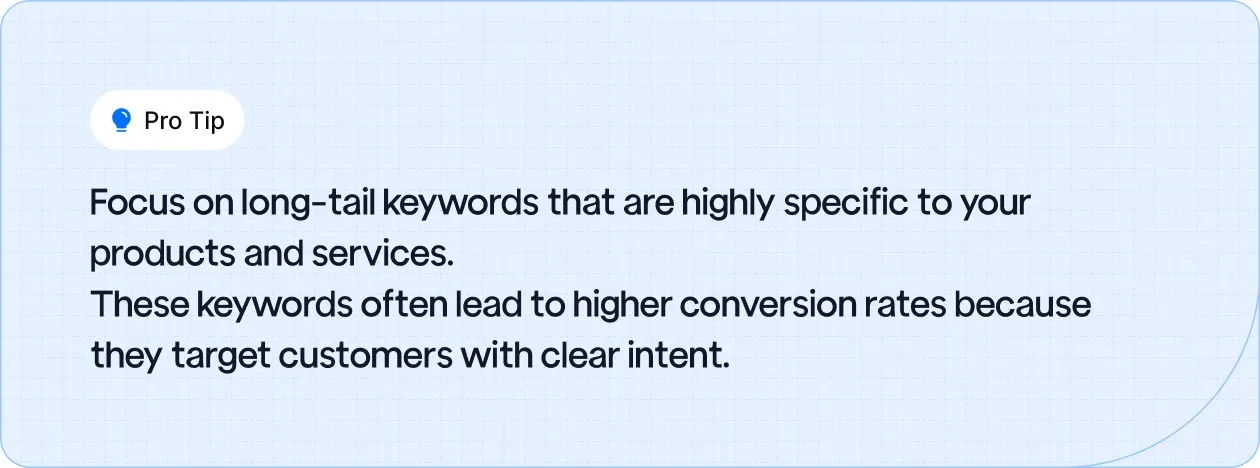
3. Content Marketing: Educating Your Audience to Build Trust
In B2B marketing, educational content is one of the most powerful tools to build trust and authority.
Creating blog posts, white papers, case studies, and infographics that address your audience’s pain points and drive organic traffic.
Distributors who provide valuable content become go-to sources for information, creating long-term customer loyalty.
Why It Works: Addressing customer pain points and offering solutions builds credibility, and educational content that demonstrates expertise is more likely to convert visitors into qualified leads.
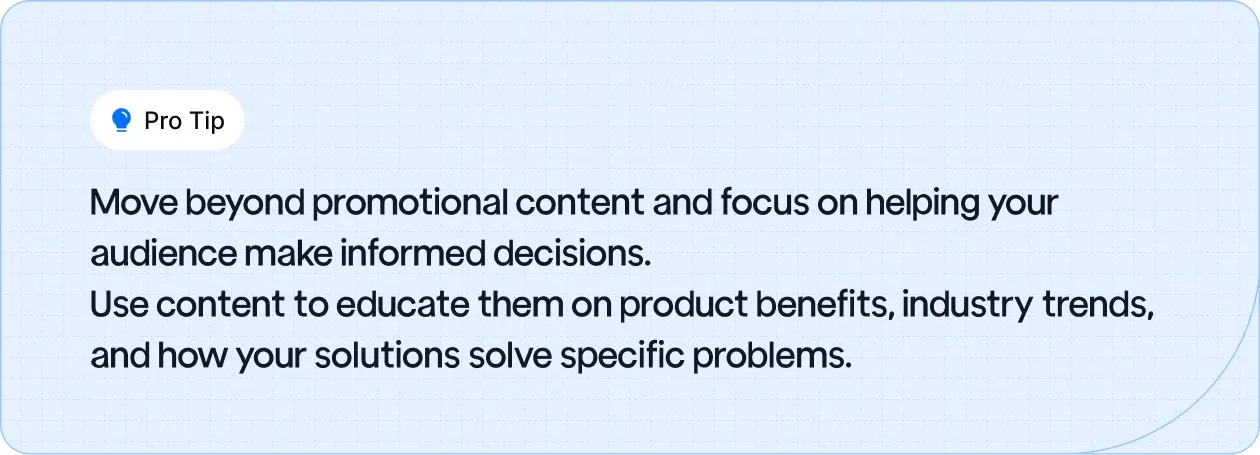
Content Types: Utilize diverse formats like video tutorials and eBooks to engage different audience preferences and enhance your content strategy.
4. Email Marketing: Building Relationships and Nurturing Leads
Email marketing remains one of the most effective ways to engage and nurture B2B leads.
By leveraging email automation tools like Mailchimp or HubSpot, distributors can create targeted campaigns that speak directly to their audience’s needs and behaviors.
Segmentation by industry or buyer behavior allows for highly personalized and relevant communication.

5. Social Media for Distributors: Building Brand Authority and Engagement
Social media is an essential tool for B2B distributors to build brand authority, engage with potential customers, and showcase their expertise.
Platforms like LinkedIn, Twitter, and Facebook allow distributors to share educational content, engage in industry conversations, and promote products in a professional setting.
Engagement Tips: Engage with industry groups, share valuable content, and participate in discussions to build credibility.

Also Read: Social Media Marketing for Manufacturers: A Lead Generation Strategy That Works
6. Pay-Per-Click (PPC) Campaigns: Driving Targeted Traffic
PPC advertising is an effective way for distributors to drive highly targeted traffic to their website.
By leveraging platforms like Google Ads and LinkedIn Ads, distributors can target specific B2B keywords, industries, and decision-makers. PPC campaigns are particularly effective in driving immediate traffic to key landing pages.
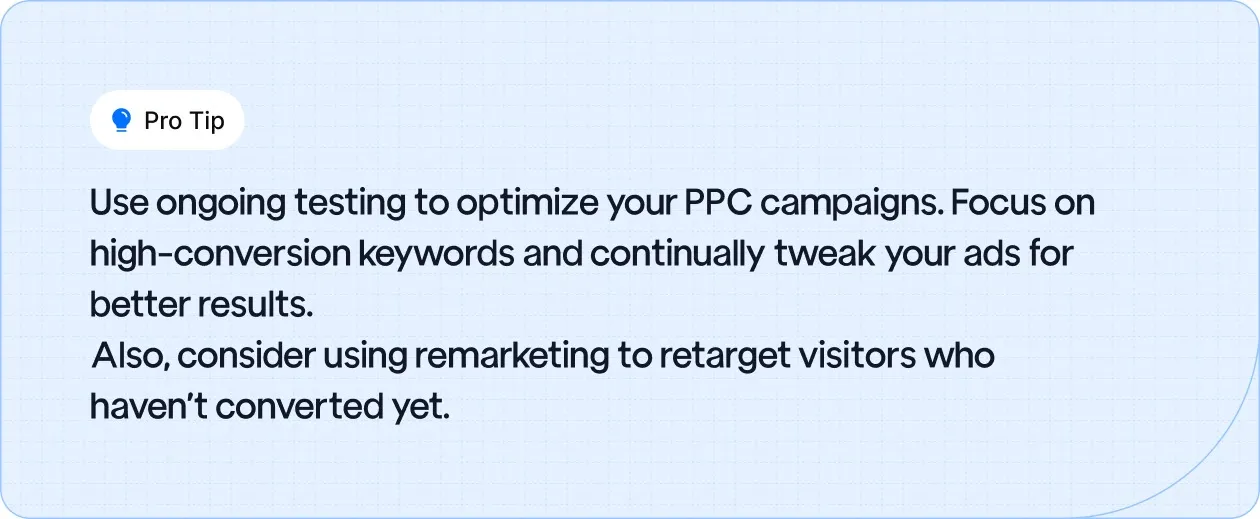
7. Data-Driven Marketing: Using Analytics to Optimize Campaigns
Data analytics tools like Google Analytics and HubSpot can provide valuable insights into campaign performance, allowing distributors to fine-tune their marketing efforts.
By tracking metrics like website traffic, conversion rates, and lead generation, distributors can better understand their customers and optimize campaigns for maximum ROI.
A Reddit user recently shared their struggles with B2B lead generation: 'We’ve tried a lot of things like LinkedIn/Facebook Ads, social media posts, Google Ads, and reaching out through emails and calls, but nothing has brought in leads or revenue.'
This sentiment resonates with many distributors facing similar hurdles.
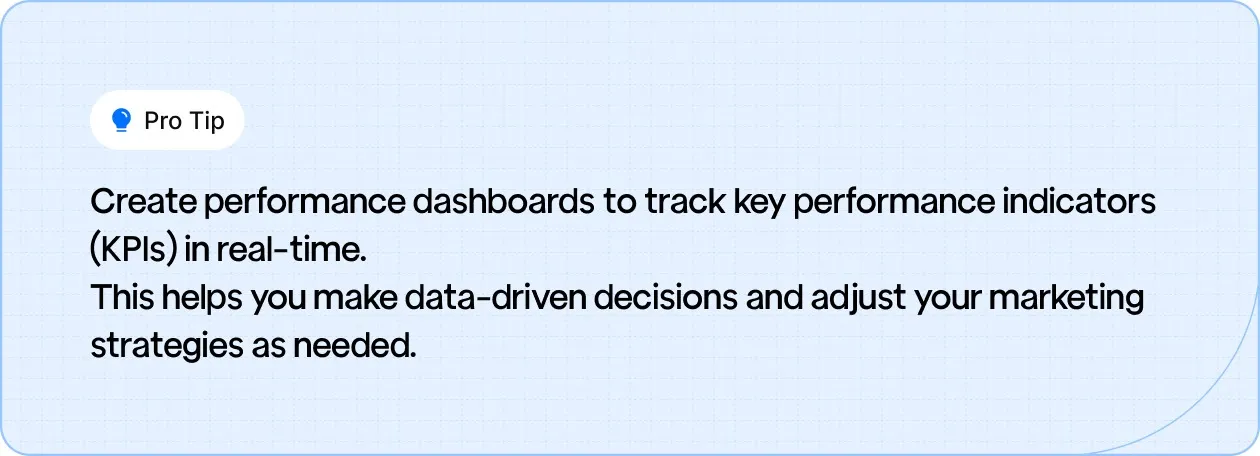
8. Automation in Distributor Marketing: Saving Time and Increasing Efficiency
Automation tools help distributors streamline repetitive marketing tasks like email sequences, lead scoring, and social media management.
By automating these tasks, distributors can free up time to focus on high-impact activities that drive growth, such as building relationships with key clients or refining their marketing strategy.
Pro Tip: Focus on automating low-touch tasks while keeping personal communication for high-value clients. This balance ensures you’re using your resources efficiently while maintaining strong relationships.
Must Read: The Ultimate Guide to Marketing Automation for Manufacturing
9. Effective Distributor Engagement: Building Long-Term Relationships
Distributor engagement goes beyond marketing; it’s about creating long-term, mutually beneficial relationships with your partners.
This involves joint business planning, co-branded campaigns, and loyalty programs that incentivize distributors to promote your products more effectively.

10. Measuring Success: Key Metrics for Digital Marketing in Distribution
To ensure your digital marketing efforts are driving the desired results, you must track key metrics like website traffic, lead conversions, and ROI.
Using tools like Google Analytics and HubSpot, distributors can measure campaign performance and optimize their strategies for continued growth.
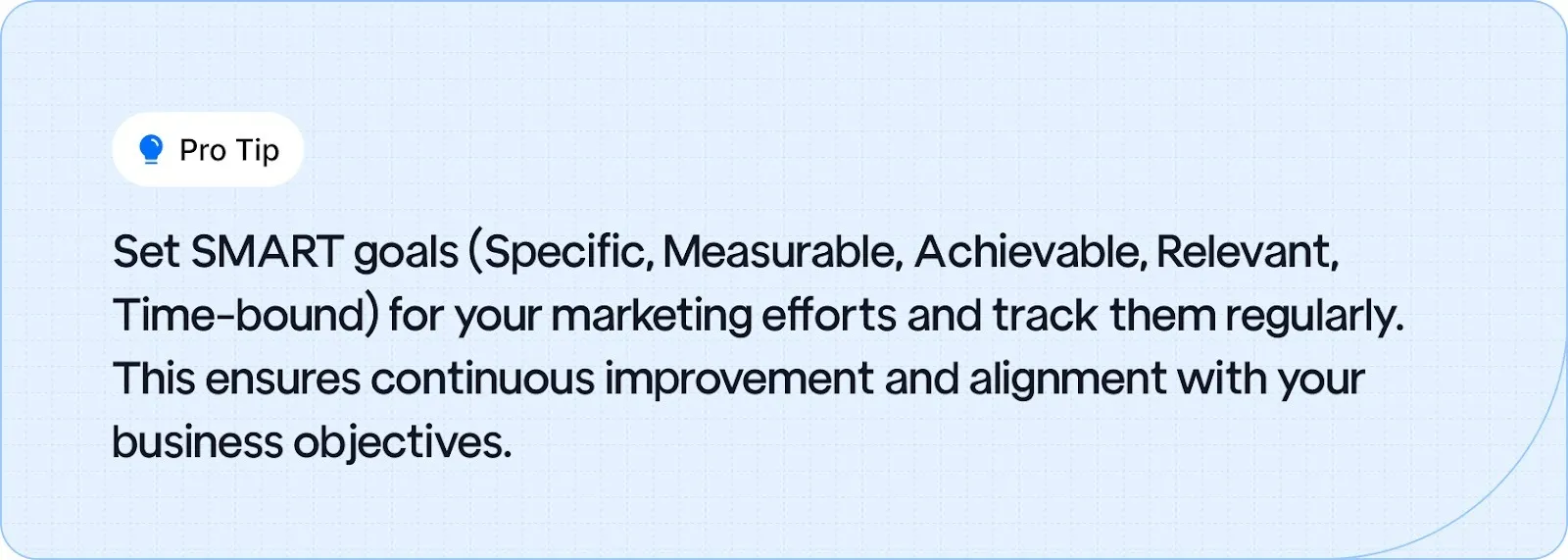
The Importance of Digital Transformation in Distributor Marketing
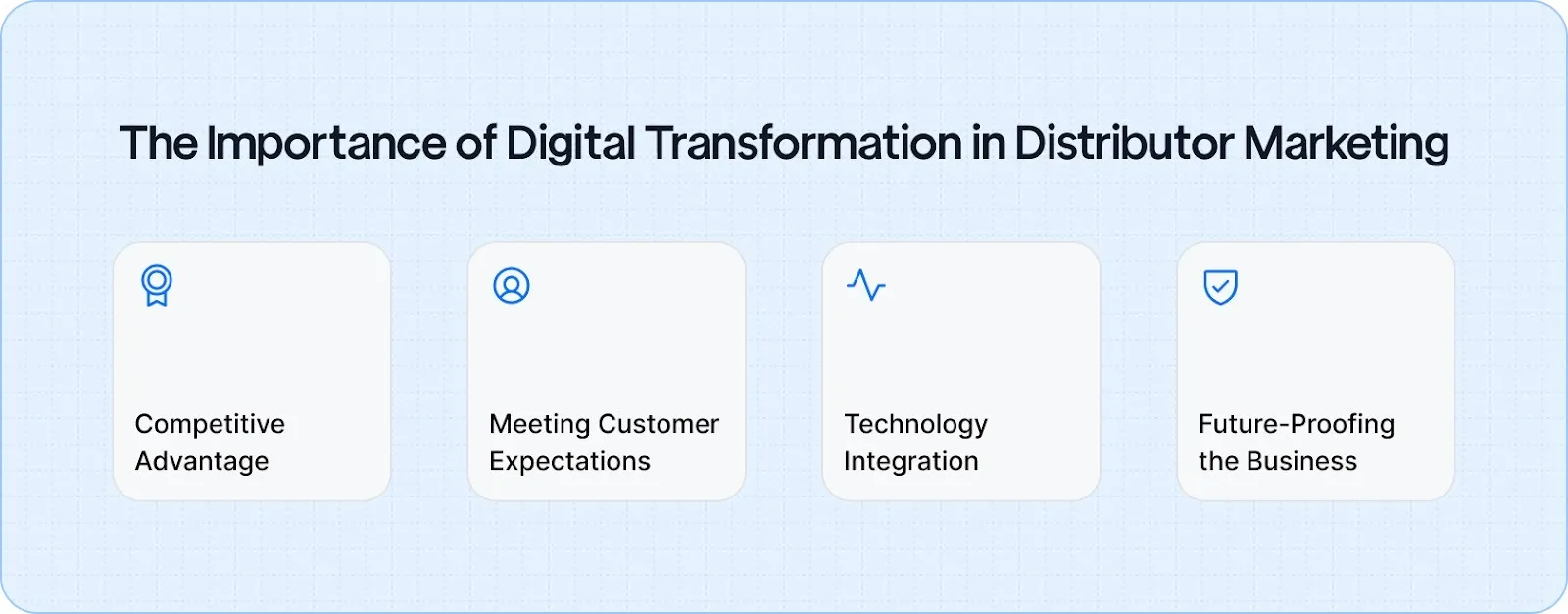
The distribution industry is rapidly evolving, and digital transformation is essential for staying competitive.
Embracing digital marketing allows distributors to be more agile and responsive to market changes, providing a clear edge over those relying on traditional methods.
- Competitive Advantage: Digital marketing tools enable distributors to adapt quickly to changes in customer preferences and market conditions.
By leveraging tools like SEO, PPC, and automation, distributors can stay ahead of competitors and position themselves as forward-thinking businesses ready to meet future demands.
- Adapting to Customer Expectations: B2B buyers expect the same seamless, personalized experiences they get from B2C brands.
Distributors can meet these expectations by using digital channels to create tailored, relevant interactions that drive stronger customer engagement and loyalty.
- Technology Integration: Integrating technology into operations, from inventory management to automated customer interactions, streamlines processes and enables distributors to make data-driven decisions.
This enhances efficiency and ensures a better overall customer experience.
- Future-Proofing the Business: Viewing digital marketing as a long-term investment rather than a trend prepares distributors for future market shifts and disruptions.
A robust digital infrastructure ensures distributors can adapt quickly, stay competitive, and meet evolving customer needs.
Take Your Distributor Marketing to the Next Level with the Right Tools
SEO, content marketing, PPC, and automation are essential tools that drive visibility, efficiency, and growth.
Distributors who rely on outdated methods are leaving valuable opportunities on the table.
The frustration of low-quality leads and missed growth potential is a real challenge, but it's solvable with the right approach.
FAQs
Q1. What are the most effective digital marketing strategies for distributors?
A1. The most effective strategies include SEO, content marketing, email marketing, and PPC. These methods help increase visibility, engage the right audience, and drive qualified leads to your distribution business.
Q2. How can SEO help distributors increase online visibility?
A2. SEO helps distributors rank higher on search engines by optimizing product pages, blog content, and using long-tail keywords. This increases organic traffic and attracts more qualified leads who are actively searching for your products.
Q3. Why is content marketing important for B2B distributors?
A3. Content marketing builds trust by providing valuable, educational content that addresses customer pain points. It helps distributors position themselves as industry experts and drive organic traffic, leading to stronger long-term relationships with customers.
Q4. How can distributors use social media to increase brand engagement?
A4. Distributors can use social media platforms like LinkedIn and Twitter to share industry insights, engage with potential customers, and participate in relevant conversations. Social media is an effective tool for building brand authority and increasing visibility within your niche.
Q5. What is the role of automation in distributor marketing?
A5. Marketing automation helps distributors streamline repetitive tasks like email marketing, lead nurturing, and social media management. This improves efficiency and allows teams to focus on high-impact activities, such as building stronger customer relationships and refining marketing strategies.
Q6. How can distributors improve lead conversion rates with email marketing?
A6. By segmenting email lists based on buyer behavior and industry, distributors can send personalized and targeted messages that resonate with each segment. This increases engagement and conversions, turning prospects into loyal customers.
Q7. How do distributors measure the success of their digital marketing campaigns?
A7. Distributors can measure success by tracking key performance indicators (KPIs) like website traffic, lead conversions, and ROI. Tools like Google Analytics and HubSpot help monitor campaign performance and provide data to optimize future strategies.

















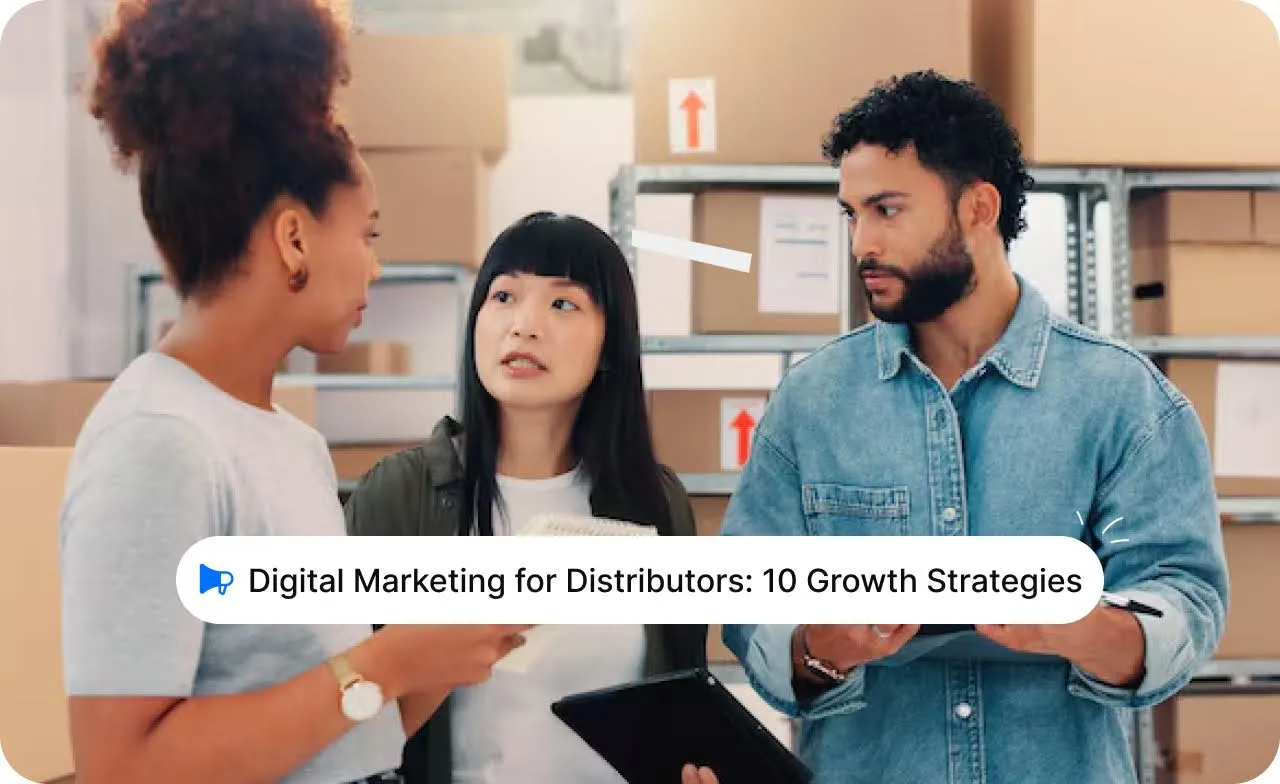



.webp)
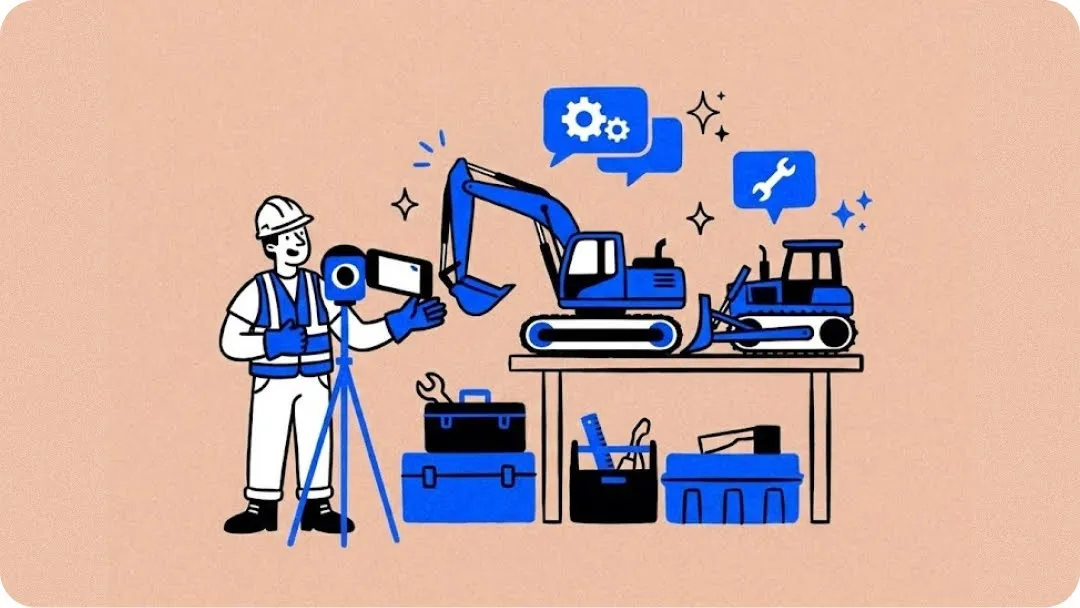


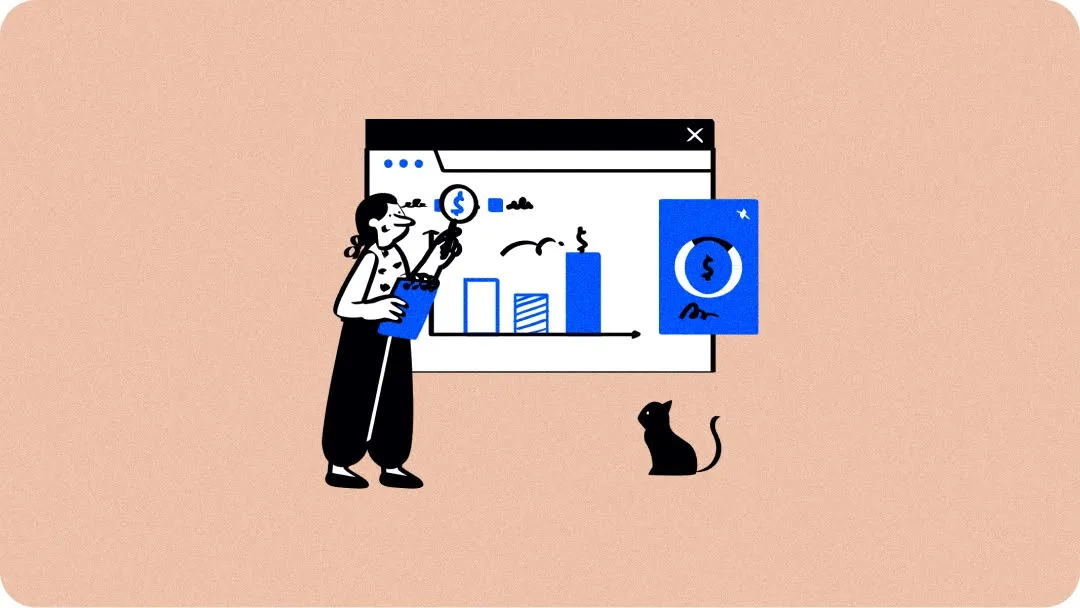




.webp)
.svg)


.svg)
.svg)
.svg)



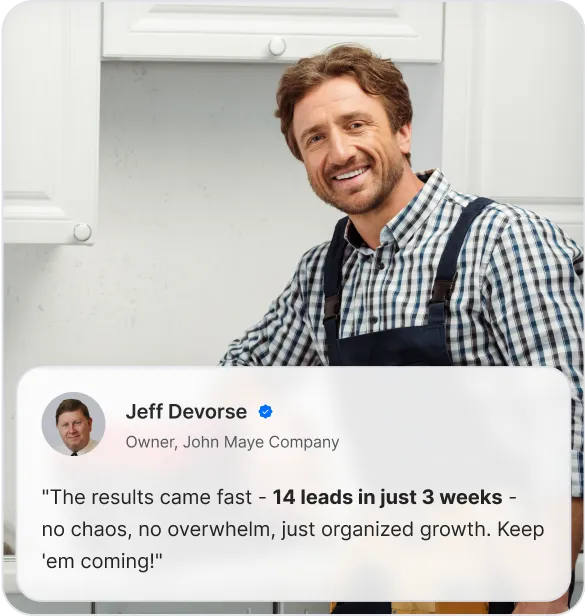
.svg)


